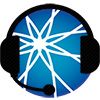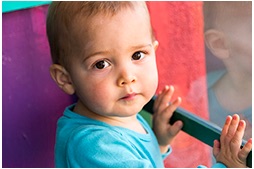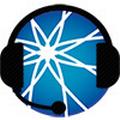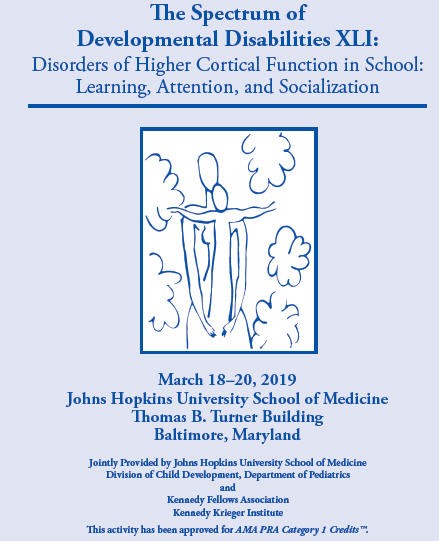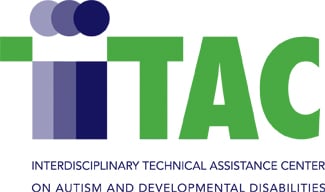Including the AUCD Trainee Orientation Modules in your Curriculum
Monday, August 26, 2019Location: Webinar
As the new academic year begins, many programs/centers are beginning to think about how to orient their trainees to the AUCD network. Developed in 2017, the AUCD Trainee Orientation Modules provide information about the structure and purpose of AUCD, how trainees "fit" in the network, connecting with experts from across the country, getting involved by contributing their experiences, and growing as leaders.
Northeast Regional LEND Programs Co-sponsor Annual Spring Conference
Friday, May 17, 2019Location: Concord, NH
This year marks the sixth annual Northeast Regional LEND conference. This year's topic will be Effects of Substance Abuse on Young Children. The conference will be held on Friday, May 17, 2019 at the Grappone Conference Center in Concord, NH. The conference is sponsored by the NH-ME LEND Program at Dartmouth College in partnership with Behavioral and Neurodevelopmental Services at Dartmouth Hitchcock Medical Center, Connecticut LEND Program at UCONN Health; Eunice Kennedy Shriver LEND Program at University of Massachusetts Medical School; LEND Program at Boston Children's Hospital; Maine LEND at the University of New England; Rhode Island LEND at Rhode Island Hospital.
Policy Post Session: A Webinar for AUCD Emerging Leaders who attended DPS2019
Thursday, April 25, 2019Location: Webinar
Join us to learn about next steps after attending the 2019 Disability Policy Seminar. You'll get tips about how to follow up with your policymakers.
Graphic Recording and Facilitation with Inky Brittany
Tuesday, April 23, 2019Location: Webinar
Graphic recording and facilitation is the use of large scale imagery to lead groups and individuals towards a goal. The method is used in various processes such as meetings, seminars, workshops and conferences.
2019 AUCD Trainee End of the Year Webinar: Maximizing Your Training Experience
Friday, April 19, 2019Location: Webinar
Before you wrap up your training and/or coursework, please come join us for the webinar led by AUCD's Emerging Leaders Interns, Shayla and Nell. They will provide prompts for you to reflect on the importance of your LEND, UCEDD, DBP or IDDRC traineeship; share practical tips for how to stay connected with the AUCD network no matter what your next steps are; and, most importantly, how you can use what you've learned over the past year to advance your professional goals.
The 2nd Healthy Weight Research Network Symposium: Promoting Healthy Weight in Children & Youth with Intellectual and Developmental Disabilities: Current Research and Future Directions
Friday, April 5, 2019Location: Parker Omni House, Boston, MA
This free symposium will provide a forum for researchers, practitioners, policymakers, people with disabilities, family members, and other interested individuals to learn about current research in the field related to promoting healthy weight for children intellectual and developmental disabilities (IDD). Through knowledge translation and dissemination this interdisciplinary symposium provides an opportunity to shine a light on the need for evidence-based health promotion programs, practices, and policies on behalf of this population.
Act Early Network Quarterly Webinar: Preschool Development Grant Birth through Five (B-5) Overview and Collaborative Opportunities
Wednesday, March 27, 2019Location: Webinar
Please join us on Wednesday, March 27th from 2-3p ET for our Act Early Network Quarterly Webinar. This quarter we will be highlighting the Preschool Development Grants Birth through Five (B-5).
The Spectrum of Developmental Disabilities XLI: Disorders of Higher Cortical Function in School: Learning, Attention, and Socialization
Monday, March 18, 2019Location: Baltimore, MD
The Spectrum of Developmental Disabilities LI: Disorders of Higher Cognitive Function in School: Learning, Attention, Socialization will be held March 18-20, 2019 at the Turner Auditorium of the Johns Hopkins University School of Medicine. Among the guest speakers for this interdisciplinary conference will beJennifer Accardo, MD, Pasquale Accardo, MD, Priscila Cascola, PhD, Thomas Challman, MD, Jason Chow, PhD, Laurie Cutting, PhD, Guinevere Eden, PhD, James Kaufman, EdD, Thomas Lock, MD, Beatrix Luna, PhD, Lauren McGrath, PhD, Mary Morningstar, PhD, Scott Myers, MD, Sue Swenson, MBA, Daniel Willingham, PhD, Patrick Wolf, PhD, Frank Zelko, PhD.
Diversity in Autism Spectrum Disorders
Monday, March 18, 2019Location: Webinar
Please join us to hear about national work and discuss issues pertinent to diversity issues in autism spectrum disorder. Brian Be, an artist, self-advocate, peer mentor and LEND fellow with The University of Colorado will moderate a three expert panel presentation and facilitate questions and comments from webinar participants.
Early Identification of Autism Spectrum Disorders
Monday, February 25, 2019Location: Webinar
Please join us to hear about national work and discuss issues pertinent to the topic of early identification of autism spectrum disorder. Dr. Alacia Stainbrook from Vanderbilt Kennedy Center will moderate a three expert panel presentation and facilitate questions and comments from webinar participants.
Sex Talk for Self-Advocates Webinar #4
Wednesday, February 13, 2019Location: Webinar
It is well documented meaningful relationships are connected to better health, social, and quality of life outcomes for all people, including people with disabilities. Relationships can help to create a greater sense of identity, self-worth, and belonging. Relationships are important, but they can look different for all of us. Join us to hear from self-advocates as they talk about their experiences being married, dating, partnered, and single. Sex Talk #4, Relationship Experiences, will focus on the personal relationship experiences of self-advocates as they join our panel of sexual health educators.
Transition in Autism Spectrum Disorders
Wednesday, January 30, 2019Location: Webinar
Please join us to hear about national work and discuss issues pertinent to the topic of supporting autistic individuals as they transition to adulthood. Dr. Eric Moody from Wyoming Institute for Disabilities will moderate a three expert panel presentation and facilitate questions and comments from webinar participants.
19th Annual Chronic Illness and Disability Conference: Transition from Pediatric to Adult-based Care
Thursday, October 25, 2018Location: Online Broadcast
AUCD is proud to support the online broadcast of the Baylor College of Medicine's: 19th Annual Chronic Illness and Disability Conference: Transition from Pediatric to Adult-based Care. All MCH Training Programs, UCEDDs, and their collaborators (Title V, clinical partner sites, etc.) are invited and encouraged to participate remotely. Host a live stream of this conference for trainees, faculty, staff, families, and others at your center or program. Eligible broadcast sites include MCH training programs, UCEDDs, and Title V programs.
2018 New DBP Directors Welcome Webinar
Wednesday, August 29, 2018Location: Online
Designed for new DBP directors but open to any DBP directors, this welcome webinar hosted by AUCD in partnership with MCHB staff will be an opportunity to learn about the technical assistance resources available from AUCD through the Interdisciplinary Technical Assistance Center (ITAC) on Autism and Developmental Disabilities.
Cross-disciplinary Competencies: Serving the whole child
Tuesday, June 26, 2018Location: Webinar
Traditionally, professionals have been trained in a single discipline usually corresponds to an area of development Additionally, most disciplines are trained to be able to offer services and intervene across a broad age range: the lifespan of an individual. Upon completion of a program of study in a discipline, an individual is then licensed in a discipline to provide services to persons across the lifespan. These training and licensing practices create two challenges to providing effective early childhood intervention to infants and young children and their families: 1) interventions may be focused to specific areas of development by discipline specific interventionists (e.g. an occupational therapist provides specific motor intervention and does not incorporate any other areas of development into her therapy/intervention); and 2) interventions may be provided by a person who does not have any specific experience or competence in infancy or early childhood
